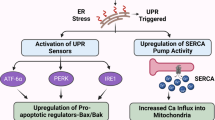Summary
MET exon 14 skipping alterations and MET amplifications are recognized as oncogenic and targetable genetic changes in cancer patients. The treatment of MET-selective tyrosine kinase inhibitors (TKIs) in this specific population has shown encouraging therapeutic results. However, a comprehensive understanding of the potential toxicities linked to these agents is still lacking. The present pharmacovigilance analysis was carried out using the FDA Adverse Event Reporting System database to assess notable adverse events associated with MET-selective TKIs. Gastrointestinal disorders, respiratory toxicity, hepatotoxicity, and disturbances in metabolism and nutrition demonstrated a substantial prevalence and significance among the adverse event (AE) categories. Particularly notable were the occurrences of peripheral oedema, nausea, dysphagia, fatigue, and dyspnoea, which emerged as the foremost five reported AEs. The majority of these AEs were observed within the initial months of initiating treatment with MET-selective TKIs and persistently thereafter. Notably, our investigation unveiled a significant correlation between the usage of capmatinib and the incidence of hearing loss and difficulty in swallowing. Diligent monitoring and the implementation of supportive care strategies are essential in managing the toxicities associated with MET-selective TKIs, particularly those related to gastrointestinal disorders, respiratory toxicity, hepatotoxicity, and ototoxicity.

Similar content being viewed by others
Data availability
No datasets were generated or analysed during the current study.
Abbreviations
- AEs :
-
Adverse events
- ROR :
-
Reporting odds ratio
- PRR :
-
Proportional reporting ratio
- IC:
-
Information component
- EBGM :
-
Empirical Bayes Geometric
- HDACs:
-
Mean Histone deacetylases
- FDA:
-
United States Food and Drug Administration
- FAERS :
-
FDA Adverse Event Reporting System
- PT :
-
Preferred term
- SOCs :
-
System organ classes
References
Koch JP, Aebersold DM, Zimmer Y et al (2020) MET targeting: time for a rematch. Oncogene 39:2845–2862
Wang Q, Yang S, Wang K et al (2019) MET inhibitors for targeted therapy of EGFR TKI-resistant lung cancer. J Hematol Oncol 12:63
Dong Y, Xu J, Sun B et al (2022) MET-targeted therapies and clinical outcomes: a systematic literature review. Mol Diagn Ther 26:203–227
Wolf J, Seto T, Han J-Y et al (2020) Capmatinib in MET exon 14-mutated or MET-amplified non-small-cell lung cancer. N Engl J Med 383:944–957
Yan YD, Zhao Y, Zhang C et al (2022) Toxicity spectrum of immunotherapy in advanced lung cancer: a safety a nalysis from clinical trials and a pharmacovigilance system. EClinicalMedicine 50
Yuan T, Li F, Hou Y et al (2023) Adverse events in patients with advanced urothelial carcinoma treated with erdafitinib: a retrospective pharmacovigilance study. Front Pharmacol 14:1266890
Fraser M, Seetharamu N, Diamond M et al (2023) Profile of capmatinib for the treatment of metastatic non-small cell lung cancer (NSCLC): patient selection and perspectives. J Cancer Manag Res 15:1233–1243
Paik PK, Felip E, Veillon R et al (2020) Tepotinib in non-small-cell lung cancer with MET Exon 14 skippi ng mutations. N Engl J Med 383:931–943
Acknowledgements
We appreciate the work of the FAERS database (https://www.fda.gov/).
Funding
This work was supported by the National Natural Science Foundation of China Grant (82373410 to W. Wang).
Author information
Authors and Affiliations
Contributions
Wenjie Li: Conceptualization, methodology, data curation, software and writing-review & editing. Wei Wang: Funding acquisition, project administration, supervision and validation. The work reported in the paper has been performed by the authors, unless clearly specified in the text.
Corresponding author
Ethics declarations
Consent for publication
Not applicable.
Ethics statement
No ethics approval and written consent were needed for the secondary analysis of public data.
Conflict of interest
The authors declare that the study was performed in the absence of the conflict of interest.
Additional information
Publisher's Note
Springer Nature remains neutral with regard to jurisdictional claims in published maps and institutional affiliations.
Highlights
• Comprehensive understanding of the potential toxicities linked to MET-selective TKIs is still lacking.
• Gastrointestinal disorders, respiratory toxicity, hepatotoxicity, and disturbances in metabolism and nutrition were prevalent and significant among the adverse event categories.
• Peripheral edema, nausea, dysphagia, fatigue, and dyspnea were the most commonly reported adverse events.
• These adverse events were observed primarily within the initial months of treatment initiation and persisted thereafter.
• Capmatinib usage showed a significant correlation with hearing loss and difficulty in swallowing.
Supplementary Information
Below is the link to the electronic supplementary material.
Rights and permissions
Springer Nature or its licensor (e.g. a society or other partner) holds exclusive rights to this article under a publishing agreement with the author(s) or other rightsholder(s); author self-archiving of the accepted manuscript version of this article is solely governed by the terms of such publishing agreement and applicable law.
About this article
Cite this article
Li, W., Wang, W. Toxicity burden patterns of MET-selective tyrosine kinase inhibitors: evidence from real-world pharmacovigilance. Invest New Drugs (2024). https://doi.org/10.1007/s10637-024-01437-z
Received:
Accepted:
Published:
DOI: https://doi.org/10.1007/s10637-024-01437-z




